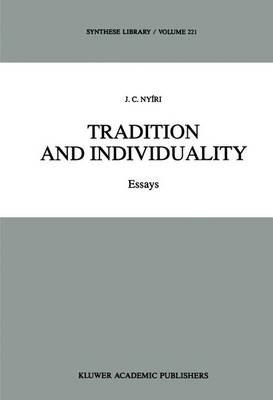Synthese Library
1 primary work
Book 221
A volume of essays on the themes of tradition, oral communication versus literal communication, Wittgenstein, and computers. The later Wittgenstein is shown to be on the one hand a traditionalist, and on the other hand, along with Heidegger, a philosopher of postmodern -- secondary -- orality, yearning for bygone, premodern times -- the times of primary orality. Under conditions of primary orality traditions fulfilled the specific cognitive role of conserving information -- a role subsequently taken over by writing, and today by electronic data processing.
The message of the volume is that the Western values of individuality and critical thinking are intimately bound up with the technology of writing. It offers arguments in favour of the standards and techniques of classical education even under conditions of, indeed as a foundation for, the emerging computer culture.
The message of the volume is that the Western values of individuality and critical thinking are intimately bound up with the technology of writing. It offers arguments in favour of the standards and techniques of classical education even under conditions of, indeed as a foundation for, the emerging computer culture.
